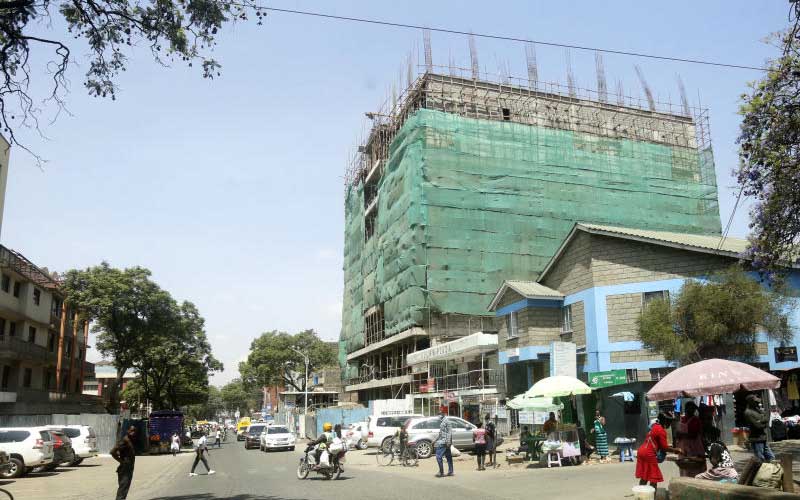×
The Standard e-Paper
Home To Bold Columnists

A building under construction along Oginga Odinga road in Nakuru city on March 9, 2022. [Kipsang Joseph, Standard]
High demand for office and commercial space is pushing estates in Nakuru out of the city centre.